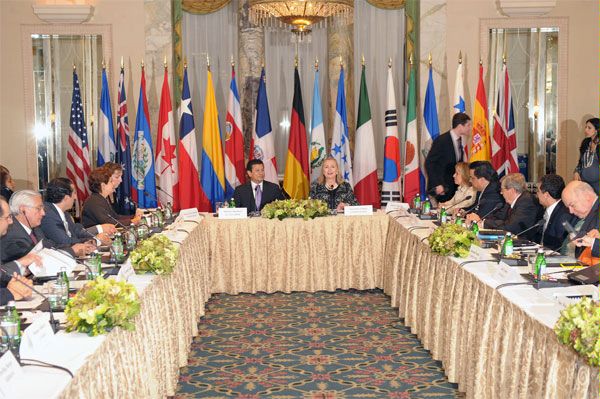San Jose, Costa Rica – The imminent joining of Panama to Central American integration system will not only be beneficial to Costa Rica from the business point of view, but also from the political side, said the Costa Rican government. Foreign Trade Minister, Anabel Gonzalez explained that this issue will be very pragmatic. Therefore, the signing of the protocol to join the system is expected on 29 June, during a meeting in Tegucigalpa, Honduras, in which it also aims to sign the Association Agreement with the European Union (EU).
 The joining of this system will accelerate the process of elimination of tariffs and trade facilitation in the Isthmus, and create an important block in the south as Panama is related to Costa Rica.
The joining of this system will accelerate the process of elimination of tariffs and trade facilitation in the Isthmus, and create an important block in the south as Panama is related to Costa Rica.
This was expressed by representatives of the Chambers of Industry of Costa Rica (ICRC), National Agriculture and Agribusiness (CNAA) and Costa Rican Food Industry (Cacia), in conjunction with the Ministry of Foreign Trade (Comex).
Panama has great commercial importance. It is the main buyer of domestic products in Central America and is a natural market.
Although a free trade agreement (FTA) between Panama and Costa Rica in effect since 1. January 2009 in its tariff reduction program, the Minister González said that the process can be accelerated with the accession.
“Panama and Costa Rica have a fairly shared integration, very pragmatic and very dynamic. It can print a turn very oriented trade, investment and facilitating the flow of goods, rather than to political efforts, “said Minister Gonzalez.
joining of Panama to the integration has been a regional desire for many years, but accelerated to the Panamanian interest in negotiating the agreement with the Europeans.
The scheme is now applied is based on a protocol of accession, Gonzalez said. It is defined at which policy issues can join the Panamanians immediately and what not to do a calendar.
Juan Ramon Rivera, vice president of the ICRC, said it will create a major regional block south, both economically and ideologically. Meanwhile, the president of the CNAA, Álvaro Sáenz, said there will be a strong political force between two poles of development in Central America.

